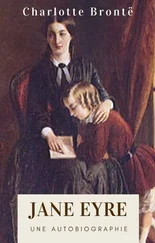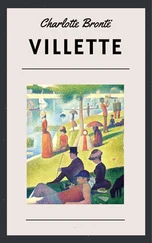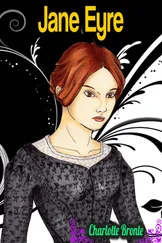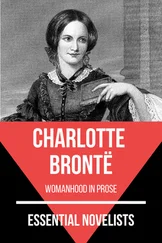Laura Rowland - Bedlam - The Further Secret Adventures of Charlotte Bronte
Здесь есть возможность читать онлайн «Laura Rowland - Bedlam - The Further Secret Adventures of Charlotte Bronte» весь текст электронной книги совершенно бесплатно (целиком полную версию без сокращений). В некоторых случаях можно слушать аудио, скачать через торрент в формате fb2 и присутствует краткое содержание. Жанр: Исторический детектив, на английском языке. Описание произведения, (предисловие) а так же отзывы посетителей доступны на портале библиотеки ЛибКат.
- Название:Bedlam: The Further Secret Adventures of Charlotte Bronte
- Автор:
- Жанр:
- Год:неизвестен
- ISBN:нет данных
- Рейтинг книги:5 / 5. Голосов: 1
-
Избранное:Добавить в избранное
- Отзывы:
-
Ваша оценка:
- 100
- 1
- 2
- 3
- 4
- 5
Bedlam: The Further Secret Adventures of Charlotte Bronte: краткое содержание, описание и аннотация
Предлагаем к чтению аннотацию, описание, краткое содержание или предисловие (зависит от того, что написал сам автор книги «Bedlam: The Further Secret Adventures of Charlotte Bronte»). Если вы не нашли необходимую информацию о книге — напишите в комментариях, мы постараемся отыскать её.
Bedlam: The Further Secret Adventures of Charlotte Bronte — читать онлайн бесплатно полную книгу (весь текст) целиком
Ниже представлен текст книги, разбитый по страницам. Система сохранения места последней прочитанной страницы, позволяет с удобством читать онлайн бесплатно книгу «Bedlam: The Further Secret Adventures of Charlotte Bronte», без необходимости каждый раз заново искать на чём Вы остановились. Поставьте закладку, и сможете в любой момент перейти на страницу, на которой закончили чтение.
Интервал:
Закладка:
Reader, forgive me if I take liberties with the details. Be assured that my narrative captures the essential truth. Here I will begin with the story of the man around whom my story revolves.
The secret adventures of John Slade
1848 December. A blizzard assailed Moscow. Its rooftops, domes, turrets, and spires disappeared into the swirling white sky. Snow from earlier falls mounded the walls of the buildings, lay piled along every street. Sleighs zoomed through the city, their runners creaking, their harnesses jingling, their horses blowing jets of vapor out of ice-caked nostrils.
John Slade leaned into the wind that blew cold, stinging snowflakes against his face as he strode along Tverskaya Street. After two months in Moscow, he blended perfectly with the Russians. He appeared to be one among hundreds of men muffled in fur-lined greatcoat, hat, and boots. No one could tell he was English. After days spent exploring the city and striking up conversations with strangers, he had learned where to find the people he wanted to meet.
He turned onto a side street lined with restaurants and taverns. Lights burned in windows fogged with steam. He entered the Cafe Philipov. Heat from a blazing fire and the sweet, Oriental-smelling smoke from Russian cigarettes engulfed him. Young men, engaged in loud, fervent conversation, crowded around the tables. Waiters served tea from samovars. Slade sat in a corner by himself. He shed his outdoor garments, lit a cigarette, and ordered tea. Listening to the other men nearest him, he learned their names and occupations.
“Damn the censors!” said one unkempt, shaggy-haired fellow named Fyodor, a writer for a progressive journal. “They suppress all my articles!”
“The Tsar doesn’t want ideas about freedom to spread from the West to the populace,” said Alexander, dignified and bespectacled, who taught philosophy at Moscow University.
Their companion was a burly, bearded poet named Peter; he thumped the table with his fist. “Revolution is coming, whether His Royal Highness wants it or not!”
Slade hitched his chair up to their table. “Revolution has already come to most of Europe, and often failed, thanks to the Tsar. He has sent his army to crush rebellions wherever he could. He is determined to keep revolution from spreading here. No wonder he’s known as the Policeman of Europe. If you want things to change, you’ll have to do more than talk.”
The men turned to Slade. “And who are you?” Fyodor asked.
“Ivan Zubov,” Slade said. “I’m a journalist from St. Petersburg.”
He spoke Russian perfectly, a result of his natural aptitude for languages and intensive study with native experts. For months before he’d come to Moscow, he’d lived in St. Petersburg, where the experts had drilled, coached, and groomed him. He’d practiced in that city until he was confident that he had mastered the role he’d chosen as his disguise. But the men regarded him with suspicion: they couldn’t afford to trust any stranger who wandered into their haunt. As Slade prepared to convince them that he was a fellow radical, the door burst open. In rushed a dozen big, stern-faced men wearing gray greatcoats and hoods, armed with clubs and pistols. Someone exclaimed, “It’s the Third Section!”
Slade knew that the Third Section was the Tsar’s secret service, the branch of the government charged with maintaining surveillance on the citizens, censoring publications, and uncovering plots against the Tsar and his regime. It employed many police, spies, informants, and agents provocateur, and had arrested hundreds of intellectuals who embraced Western notions of government reform. It had evidently learned that these intellectuals liked to gather at the Cafe Philipov.
Customers jumped up from the tables and rushed toward the back door. Slade didn’t want to be arrested any more than his new acquaintances did. He followed them. The Third Section policemen lunged after the departing horde. They attacked men too drunk or too slow to run. As they wielded their clubs, Slade heard bones crack and cries of pain. He evaded the policemen who grabbed at him, but Alexander the professor wasn’t so agile. A policeman caught him. He called for help. Peter and Fyodor hurried to his rescue, but Slade shouted, “Go! I’ll save your friend!”
He seized the policeman who had begun beating Alexander. The policeman rounded on Slade, club swinging. Slade ducked. He rammed his fist into the policeman’s stomach. The policeman grunted and doubled over. Slade wrested the club from his hand, then smote him on his head. He fell, unconscious. While Slade hurried Alexander to the door, the other police fired their pistols. Gunshots erupted behind Slade. Bullets struck walls, shattered windows. Slade and Alexander tumbled outside, into the blizzard.
Peter and Fyodor were waiting. “Hurry!” they cried. Supporting Alexander, whose leg was hurt, they led Slade through the maze of alleys. Behind them, rapid footsteps broke the snow and screams blared as the police pursued other men who’d escaped from the cafe. More gunshots exploded. Slade and his group tumbled down a flight of icy stairs to the cellar of a tavern. They crouched, coatless and shivering, until the night was quiet.
“Thank you,” Alexander said to Slade. “If not for you, I would be dead now.”
The other men nodded. The suspicion in their eyes had given way to respect. Peter said, “You may be a stranger in town, but you are our comrade.”
As Slade shook hands with his new friends, he felt a mixture of satisfaction and sadness. He liked these men, and he sympathized with their cause, but he was duty-bound to exploit them. He regretted that the friendships he cultivated in the course of his work often turned out badly, for both sides.
5
I felt better after making the decision to return to Bedlam, but I couldn’t go alone, and I knew Dr. Forbes would be unwilling to escort me. During breakfast at Number 76 Gloucester Terrace the next morning, I told George Smith what had happened the previous day and tried to press him into service. He said, “I’m sorry, Charlotte, but I think Dr. Forbes is right. You must have made a mistake. It would be best to forget the whole business.”
“Surely, Miss Bronte, you wouldn’t drag George into it?” his mother was quick to object. “Not on his Saturday off.” She sounded as much aggrieved because I dared make work for him as appalled that I’d gotten mixed up in sordid doings.
I said, “I am afraid that until I discover the true identity of the lunatic, I won’t be able to concentrate on my writing.”
This was sheer blackmail. Mrs. Smith bit back a retort: she knew how much the fortunes of Smith, Elder and Company depended on me. George protested that another trip to Bedlam would only worsen my state of mind, but in the end he capitulated.
While we drove through London, rain began to fall. We hurried up the steps of Bedlam, got drenched in the downpour, and paid our admission fees. As I hurried George through the wards, I noticed matrons and attendants standing in huddles, conversing in low, nervous voices. Patients roved, more agitated than they’d been the day before. Upon reaching the door to the criminal lunatics’ wing, we found a uniformed police constable standing guard.
“What’s going on?” George asked.
The constable was young, as fresh-faced as a farm boy, and clearly distressed. “There’s been a murder.”
The word struck a mighty throb of alarm through me. My fears for Slade surged higher.
“Who’s been killed?” George asked.
“I’m not at liberty to say,” the constable said. When I threw myself at the door, he held me off. “Sorry, mum, you can’t go in there.”
George read the name on the constable’s badge and said, “Look here, Constable Ryan-I’m George Smith of Smith, Elder and Company, and the police commissioner is a friend of mine.” It was true; George had many friends in many places. “Let me in, or the next time I see him, I’ll mention that you were uncooperative.”
Читать дальшеИнтервал:
Закладка:
Похожие книги на «Bedlam: The Further Secret Adventures of Charlotte Bronte»
Представляем Вашему вниманию похожие книги на «Bedlam: The Further Secret Adventures of Charlotte Bronte» списком для выбора. Мы отобрали схожую по названию и смыслу литературу в надежде предоставить читателям больше вариантов отыскать новые, интересные, ещё непрочитанные произведения.
Обсуждение, отзывы о книге «Bedlam: The Further Secret Adventures of Charlotte Bronte» и просто собственные мнения читателей. Оставьте ваши комментарии, напишите, что Вы думаете о произведении, его смысле или главных героях. Укажите что конкретно понравилось, а что нет, и почему Вы так считаете.











